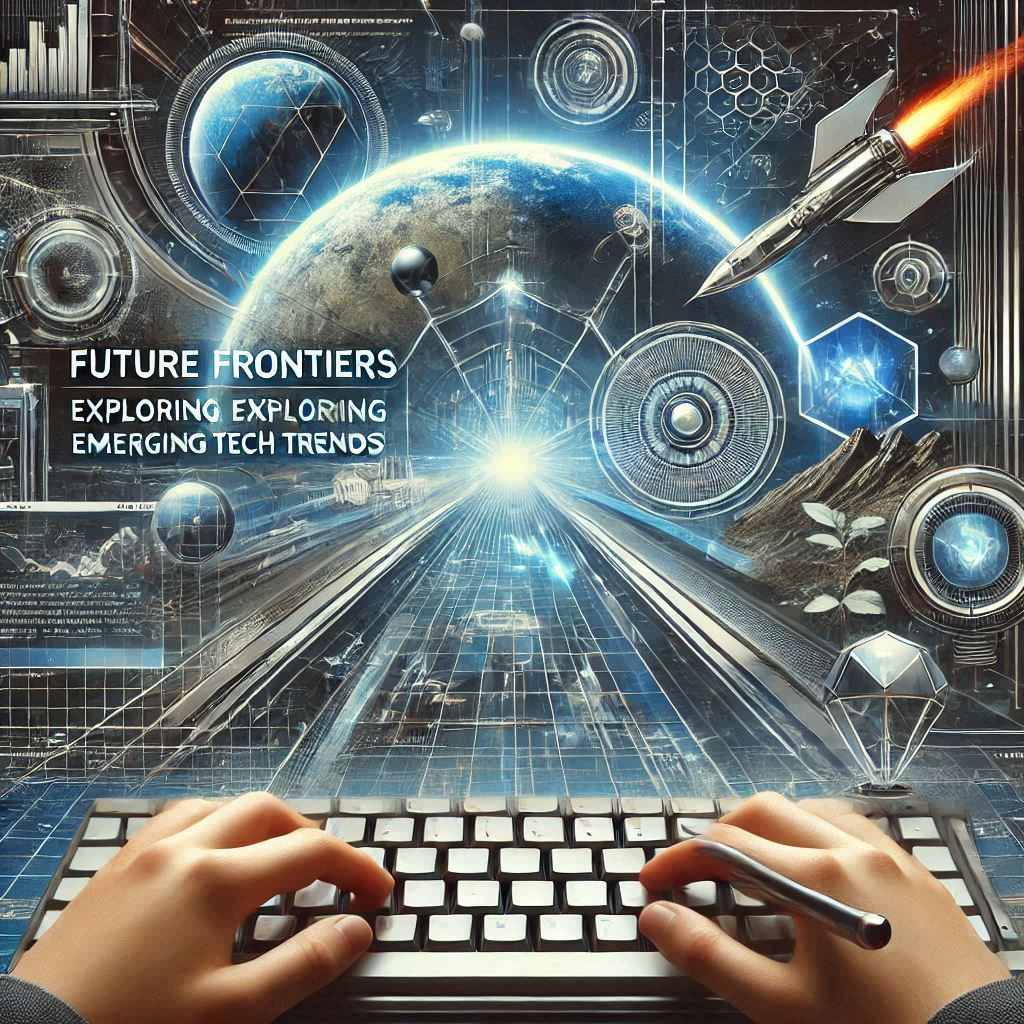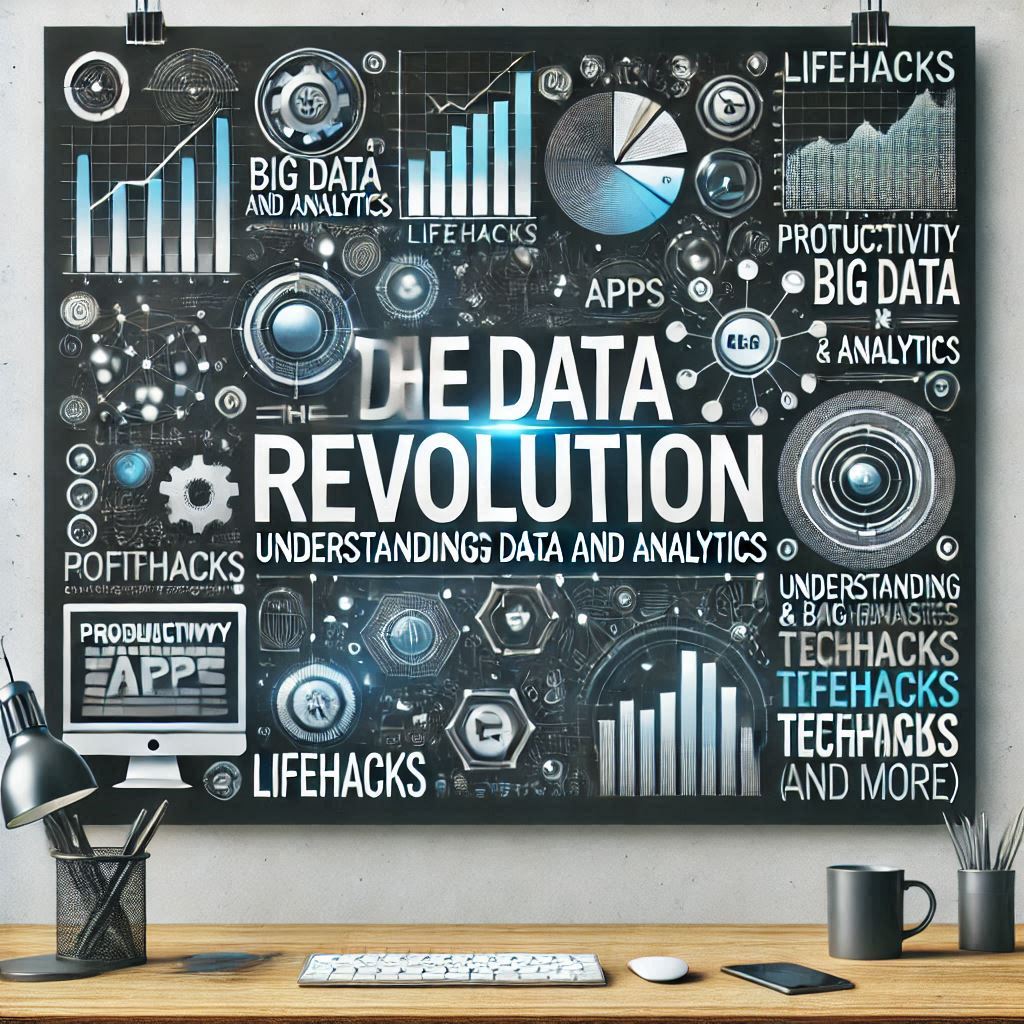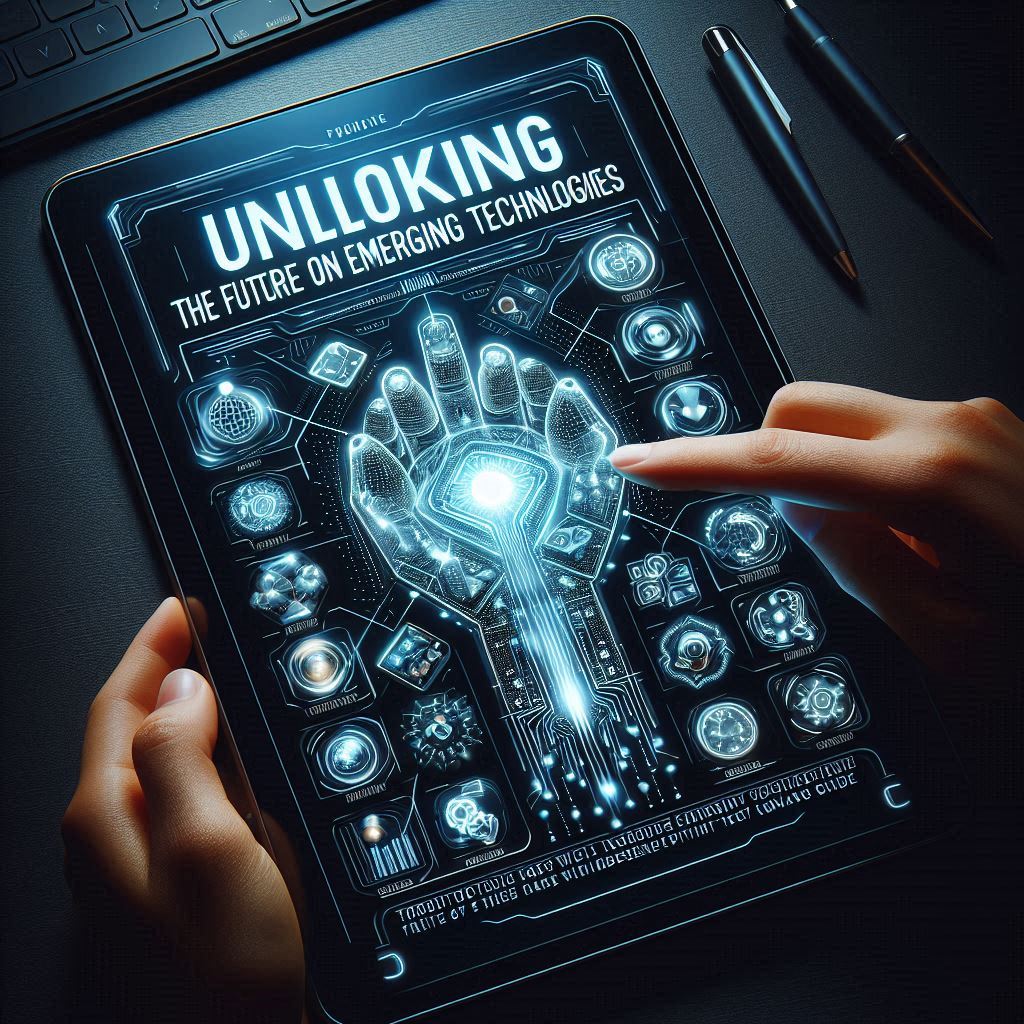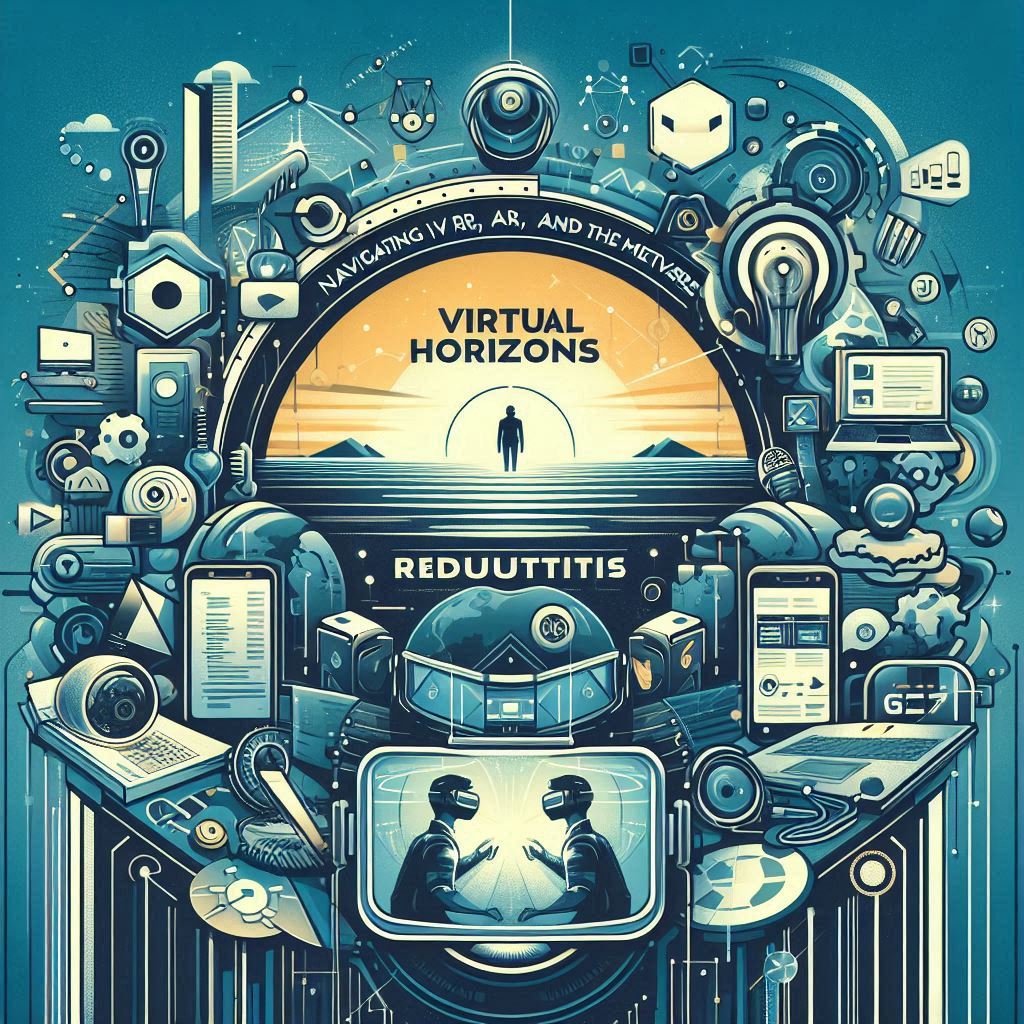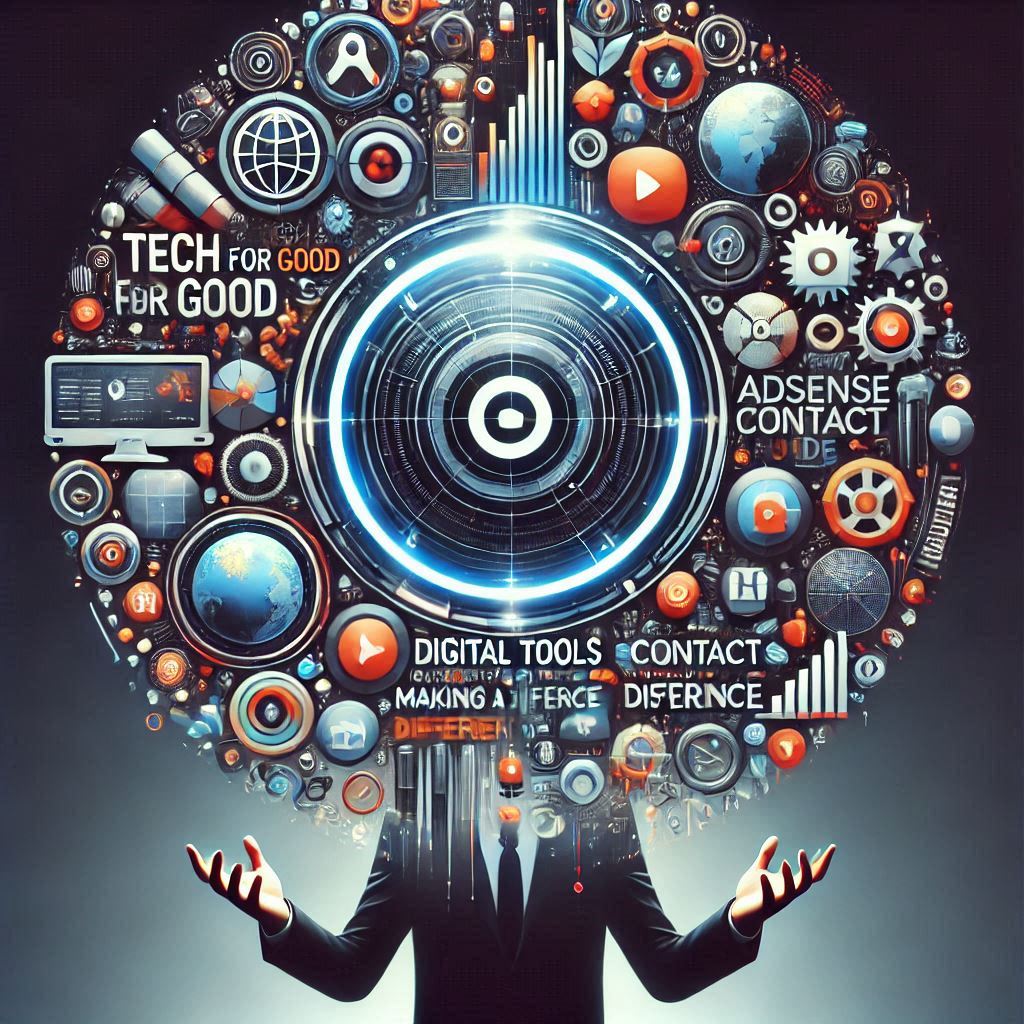The world of technology is rapidly evolving, and as we stand at the edge of new innovations, it’s crucial to explore the emerging trends that will shape the future. From artificial intelligence to blockchain, the next decade promises to revolutionize industries, businesses, and daily life in ways we can only begin to imagine. Here’s a deep dive into some of the most promising technology trends that will likely redefine our world.
1. Artificial Intelligence and Machine Learning
Artificial Intelligence (AI) and Machine Learning (ML) are transforming everything from healthcare to finance, creating opportunities for automation, data analysis, and predictive analytics. AI is being used to improve customer service, optimize manufacturing processes, and enhance decision-making by processing vast amounts of data faster than humans could.
Why it matters: As AI continues to evolve, expect smarter and more efficient systems that can help solve complex global challenges such as climate change, healthcare, and economic development.
Applications: Healthcare diagnostics, personalized recommendations, autonomous vehicles, and chatbots are just the beginning.
2. 5G and Next-Generation Connectivity
The rollout of 5G technology promises to deliver ultra-fast internet speeds and lower latency, opening up a world of possibilities. With 5G, we can expect better mobile experiences, smoother video streaming, and more reliable connections for IoT devices.
Why it matters: 5G is critical for enabling a new era of connected devices, from smart cities to autonomous vehicles. It will provide the infrastructure for innovations like augmented reality (AR) and virtual reality (VR) to become mainstream.
Applications: Faster data downloads, smart homes, industrial automation, and improved remote work capabilities.
3. Blockchain and Decentralized Finance (DeFi)
Blockchain technology, which underpins cryptocurrencies like Bitcoin, is expanding beyond finance. Its secure, decentralized nature is paving the way for new digital services, particularly in the realm of finance. Decentralized finance (DeFi) enables peer-to-peer transactions without the need for traditional banking intermediaries.
Why it matters: Blockchain can provide transparency, reduce fraud, and lower transaction costs. The ability to create decentralized applications (DApps) has the potential to disrupt industries like supply chain management, healthcare, and voting systems.
Applications: Cryptocurrency, smart contracts, supply chain tracking, and secure identity verification.
4. Quantum Computing
Quantum computing is one of the most exciting frontiers in technology. Unlike classical computers, quantum computers use quantum bits (qubits) that allow them to solve complex problems exponentially faster. This could revolutionize fields such as cryptography, materials science, and drug development.
Why it matters: Quantum computing could unlock breakthroughs that were previously thought impossible, such as simulating molecular structures for drug discovery or optimizing logistics networks for global supply chains.
Applications: Drug development, cybersecurity, climate modeling, and AI training.
5. Augmented Reality (AR) and Virtual Reality (VR)
AR and VR technologies are already transforming industries like gaming, education, and retail. By blending the physical and digital worlds, AR enhances reality, while VR creates immersive virtual environments. These technologies are becoming increasingly important in sectors such as healthcare, architecture, and tourism.
Why it matters: AR and VR will reshape how we interact with digital content, offering new ways to learn, shop, and work. Businesses will be able to create engaging experiences for customers, while remote teams can collaborate in more interactive ways.
Applications: Virtual training, immersive gaming, remote collaboration, and virtual tourism.
6. Robotics and Automation
Robotics and automation are accelerating at an unprecedented pace. From self-driving cars to warehouse robots, automation is transforming how businesses operate. With the rise of AI and machine learning, robots are becoming smarter, more adaptable, and capable of performing increasingly complex tasks.
Why it matters: Automation will reduce human labor in dangerous or repetitive jobs, increase efficiency, and lower costs. As robots become more advanced, they will also create new opportunities for innovation in fields like healthcare and logistics.
Applications: Automated manufacturing, delivery drones, robotic surgery, and autonomous vehicles.
7. Internet of Things (IoT)
The Internet of Things (IoT) refers to the interconnected network of devices that communicate with each other through the internet. From smart thermostats to wearable health trackers, IoT is transforming how we live and work by collecting and analyzing real-time data.
Why it matters: IoT creates a more connected world, enabling smarter homes, cities, and industries. The ability to collect and analyze data from IoT devices will drive efficiencies, improve customer experiences, and provide valuable insights.
Applications: Smart homes, connected healthcare devices, industrial IoT (IIoT), and autonomous vehicles.
8. Biotechnology and Genetic Engineering
Biotechnology is advancing rapidly, with breakthroughs in genetic engineering, gene editing (CRISPR), and personalized medicine. These technologies hold the potential to cure diseases, improve food security, and even extend human lifespan.
Why it matters: Biotechnology will revolutionize healthcare and agriculture, providing solutions to some of the world’s most pressing issues, including genetic diseases, food shortages, and climate change.
Applications: Gene therapy, personalized medicine, agricultural biotechnology, and environmental conservation.
9. Digital Twins
A digital twin is a virtual replica of a physical object or system. By creating a digital version of a product, process, or system, companies can monitor, simulate, and optimize performance in real time. This technology is already being used in industries like manufacturing, construction, and energy.
Why it matters: Digital twins allow businesses to predict outcomes, reduce downtime, and enhance product development. This is especially useful for complex systems where real-time data and simulation can prevent costly failures.
Applications: Predictive maintenance, urban planning, product design, and supply chain optimization.
Conclusion
As technology continues to evolve, we can expect these emerging trends to reshape the way we live, work, and interact with the world around us. The future is filled with exciting possibilities, and staying ahead of these trends will give businesses and individuals the opportunity to be at the forefront of innovation.
